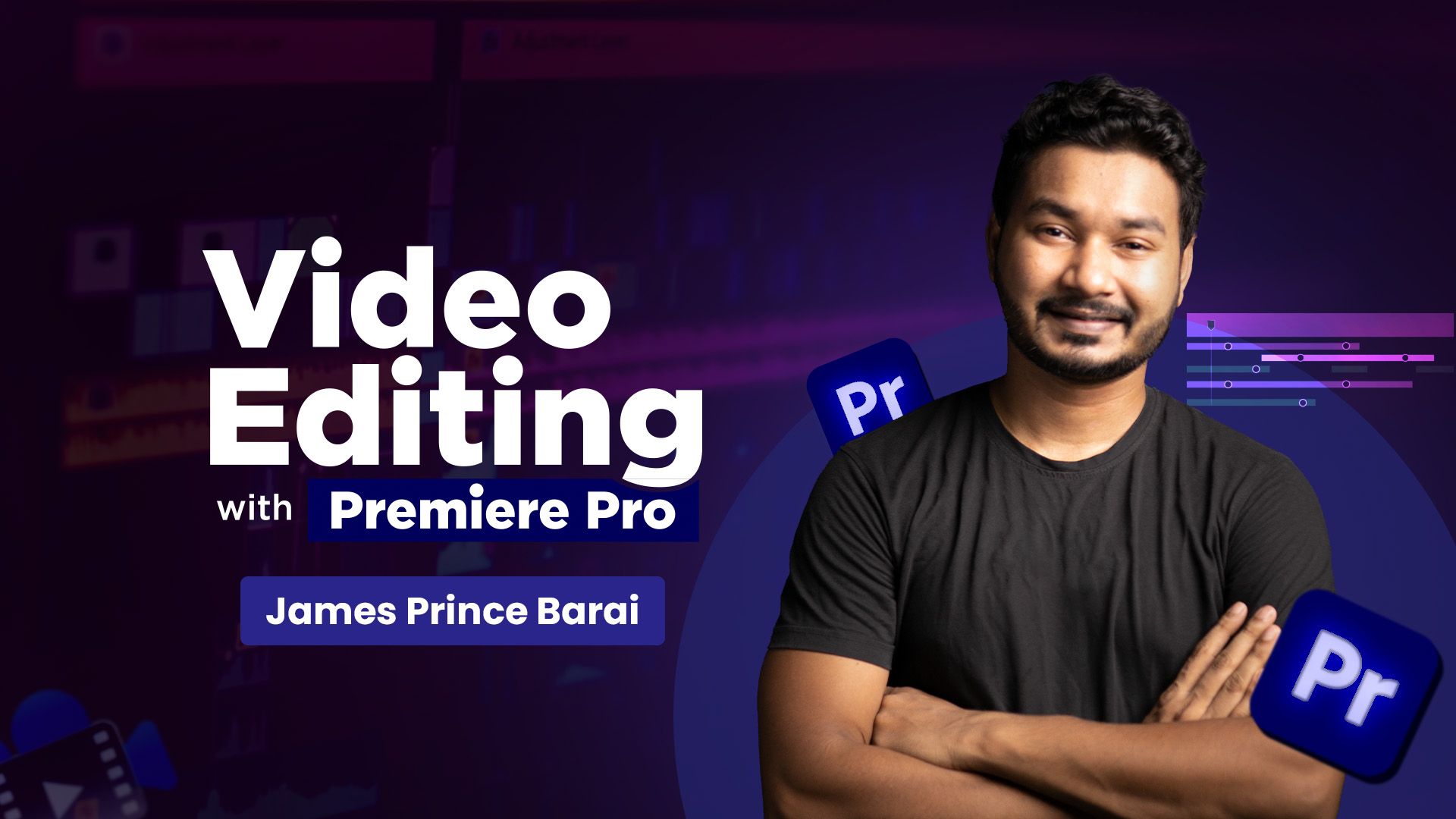How to Choose the Best Freelancing Category for Your
Choosing the right freelancing category is a crucial step for anyone looking to enter the freelance market. With numerous options available, making an informed decision can set the foundation for a successful and fulfilling freelancing career. This comprehensive guide will help you understand the different aspects of choosing the right freelancing category, ensuring that you find the best fit for your skills, interests, and goals.
Introduction
Importance of Choosing the Right Freelancing Category
In the world of freelancing, selecting the right category can be the difference between a thriving career and a struggling one. The right freelancing category aligns with your skills, passions, and market demand, providing a sustainable and enjoyable work experience. This guide aims to help you navigate the various freelancing categories and find the perfect match for your unique profile.
Overview of Freelancing Categories
Freelancing offers a plethora of categories, each with its own set of opportunities and challenges. From writing and graphic design to web development and digital marketing, the options are vast and varied. Understanding these categories and what they entail will help you make an informed decision about where to focus your efforts.
Self-Assessment
Identifying Your Skills
The first step in choosing a freelancing category is to identify your skills. Consider your professional background, educational qualifications, and any hobbies or side projects that have equipped you with valuable skills. Make a list of both hard and soft skills, as both are crucial in freelancing.
Understanding Your Interests
Your interests play a significant role in determining the right freelancing category. Working in a field that you are passionate about will not only make your job more enjoyable but also increase your chances of success. Reflect on what you love doing and how it aligns with potential freelancing opportunities.
Evaluating Your Experience
Experience is a key factor in establishing yourself as a credible freelancer. Evaluate your past work experience and how it can translate into freelance services. Even if you are entering a new field, consider any transferable skills that can give you a head start.
Market Research
Analyzing Market Demand
Understanding market demand is crucial in choosing a profitable freelancing category. Research which skills and services are in high demand in the current market. Tools like Google Trends, job boards, and freelance platforms can provide valuable insights into market trends.
Understanding Competition
Competition is a natural part of freelancing. Analyze the level of competition in various categories to determine which areas might be oversaturated and which have room for new entrants. Competitive analysis will help you identify niches where you can stand out.
Identifying Profitable Niches
Finding a profitable niche within a broader category can be a game-changer. Niches often have less competition and allow you to specialize, which can lead to higher rates and more targeted marketing efforts. Look for gaps in the market where your unique skills can fill a need.
Types of Freelancing Categories
Writing and Editing
Content Writing
Content writing involves creating articles, blog posts, and other written content for websites and online platforms. It requires solid composing abilities, research capacities, and a comprehension of Web optimization.
Copywriting
Copywriting focuses on persuasive writing aimed at promoting products or services. This includes writing ads, sales pages, and email campaigns.
Technical Writing
Technical writing involves creating manuals, user guides, and other documentation for complex products and services. It requires a deep understanding of the subject matter and the ability to explain it clearly.
Proofreading and Editing
Proofreading and editing services ensure that written content is free of errors and flows well. This category requires a keen eye for detail and strong language skills.
Graphic Design
Branding and Logo Design
Branding and logo design involve creating visual identities for businesses. This includes designing logos, brand guidelines, and marketing materials.
UX/UI Design
UX/UI design focuses on creating user-friendly interfaces for websites and applications. It requires a comprehension of client conduct and plan standards.
Illustration
Illustration involves creating custom artwork for various purposes, such as books, magazines, and digital media. It requires strong artistic skills and creativity.
Print Design
Print design includes creating materials like brochures, posters, and packaging. This category requires knowledge of print processes and design software.
Web Development
Front-End Development
Front-end development involves creating the visual part of websites and applications. It requires abilities in HTML, CSS, and JavaScript.
Back-End Development
Back-end advancement centers around the server side of web applications. It requires knowledge of programming languages like Python, Ruby, and PHP.
Full-Stack Development
Full-stack advancement includes chipping away at both the front-end and back-finish of web applications. It requires a broad skill set in web development technologies.
Web Maintenance
Web maintenance includes updating and managing websites to ensure they run smoothly. This can involve fixing bugs, updating content, and improving performance.
Digital Marketing
SEO and SEM
SEO (Search Engine Optimization) and SEM (Search Engine Marketing) involve improving website visibility in search engines. This requires knowledge of search algorithms, keyword research, and marketing strategies.
Social Media Marketing
Virtual entertainment advertising includes advancing organizations via web-based entertainment stages. It requires an understanding of social media trends, analytics, and advertising tools.
Content Marketing
Content marketing focuses on creating and distributing valuable content to attract and engage an audience. This includes blogging, video production, and social media posts.
Email Marketing
Email marketing involves creating and managing email campaigns to promote products or services. It requires skills in writing, design, and analytics.
Virtual Assistance
Administrative Tasks
Administrative tasks include managing schedules, handling emails, and performing other organizational duties. This category requires strong organizational and communication skills.
Customer Service
Customer service involves responding to customer inquiries and resolving issues. It requires phenomenal correspondence and critical thinking abilities.
Social Media Management
Social media management involves creating and scheduling posts, engaging with followers, and analyzing performance on social media platforms.
Data Entry
Data entry includes entering and managing data in various formats. It requires attention to detail and proficiency with data management tools.
Consulting and Coaching
Business Consulting
Business consulting involves providing expert advice to help businesses improve their operations and strategies. This category requires extensive business knowledge and problem-solving skills.
Life Coaching
Life coaching focuses on helping individuals achieve their personal goals. This requires strong interpersonal skills and the ability to motivate others.
Career Coaching
Career coaching involves helping individuals with career planning and development. This requires knowledge of job markets and career advancement strategies.
Financial Consulting
Financial consulting provides advice on managing finances, investments, and budgeting. This requires a strong understanding of financial principles and markets.
IT and Networking
Network Administration
Network administration involves managing and maintaining computer networks. This requires knowledge of network infrastructure and security.
Cybersecurity
Cybersecurity focuses on protecting systems and data from cyber threats. This requires knowledge of security protocols and threat management.
IT Support
IT support involves troubleshooting technical issues and providing assistance to users. This requires problem-solving skills and technical knowledge.
Cloud Services
Cloud services include managing and optimizing cloud computing resources. This requires knowledge of cloud platforms and services.
Translation and Languages
Document Translation
Document translation involves translating written content from one language to another. This requires proficiency in multiple languages and cultural awareness.
Interpretation Services
Interpretation services involve translating spoken language in real-time. This requires excellent language skills and quick thinking.
Language Tutoring
Language tutoring involves teaching languages to individuals or groups. This requires proficiency in the language and teaching skills.
Localization
Restriction includes adjusting content to fit the social and phonetic setting of a particular district. This requires cultural sensitivity and language skills.
Photography and Videography
Event Photography
Event photography involves capturing moments at events like weddings, parties, and conferences. This requires technical skills and creativity.
Commercial Photography
Commercial photography focuses on creating images for marketing and advertising purposes. This requires an understanding of branding and product presentation.
Video Production
Video production involves creating videos for various purposes, such as marketing, education, and entertainment. This requires skills in filming, editing, and storytelling.
Photo and Video Editing
Photo and video editing involve enhancing and assembling visual content. This requires technical skills and creativity.
Other Emerging Categories
Virtual Reality (VR) and Augmented Reality (AR)
VR and AR involve creating immersive digital experiences. This requires knowledge of VR/AR technology and design principles.
Blockchain and Cryptocurrency
Blockchain and cryptocurrency involve working with decentralized digital currencies and technologies. This requires knowledge of blockchain principles and financial markets.
Environmental Consulting
Environmental consulting provides advice on environmental management and sustainability. This requires knowledge of environmental regulations and practices.
E-Commerce Services
E-commerce services include managing online stores, optimizing product listings, and handling transactions. This requires information on web-based business stages and promoting methodologies.
Balancing Multiple Categories
Diversifying Your Skill Set
Diversifying your skill set allows you to offer multiple services and increase your income potential. It involves continuous learning and adaptation.
Managing Time and Workload
Managing time and workload is crucial when balancing multiple categories. This requires effective time management and organizational skills.
Benefits of a Multifaceted Approach
A multifaceted approach can lead to more opportunities and financial stability. It allows you to adapt to market changes and client needs.
Building a Portfolio
Importance of a Strong Portfolio
A strong portfolio showcases your skills and experience to potential clients. It is essential for establishing credibility and attracting clients.
Showcasing Your Best Work
Showcase your best work in your portfolio to highlight your strengths. This includes selecting high-quality samples and organizing them effectively.
Gathering Testimonials and Reviews
Gathering testimonials and reviews from clients adds credibility to your portfolio. This requires delivering high-quality work and maintaining good client relationships.
Setting Your Rates
Understanding Industry Standards
Understanding industry standards helps you set competitive rates. This requires researching average rates for your services.
Pricing Strategies
Pricing strategies include hourly rates, project-based rates, and retainer agreements. Choose a strategy that aligns with your business model and goals.
Negotiation Tips
Negotiation tips include being clear about your value, understanding client budgets, and being willing to compromise. Effective negotiation ensures fair compensation.
Marketing Yourself
Creating a Personal Brand
Creating a personal brand involves developing a unique identity that reflects your skills and values. This requires consistency and strategic marketing.
Networking Strategies
Networking strategies include attending industry events, joining professional groups, and connecting with other freelancers. Effective networking leads to opportunities and collaborations.
Utilizing Social Media
Utilizing social media involves promoting your services and engaging with potential clients on platforms like LinkedIn, Twitter, and Instagram.
Finding Clients
Freelance Platforms
Freelance platforms like Upwork, Fiverr, and Freelancer provide access to a large pool of potential clients. Optimize your profile and apply for relevant jobs.
Direct Outreach
Direct outreach involves contacting potential clients directly via email or social media. This requires a proactive approach and effective communication skills.
Referrals and Word-of-Mouth
Referrals and word-of-mouth are powerful tools for finding clients. This requires information on web-based business stages and promoting methodologies.
Handling Client Relationships
Communication Skills
Effective communication is essential for managing client relationships. This includes being clear, responsive, and professional in all interactions.
Managing Expectations
Managing expectations involves setting clear boundaries and delivering on promises. This ensures client satisfaction and reduces misunderstandings.
Building Long-Term Relationships
Building long-term relationships with clients leads to repeat business and stability. This requires providing consistent quality and maintaining good rapport.
Legal and Financial Considerations
Contracts and Agreements
Contracts and agreements protect both you and your clients. Guarantee that all terms are clear and lawfully restricting.
Tax Obligations
Understanding tax obligations is crucial for freelancers. This includes keeping accurate records and filing taxes on time.
Financial Management
Financial management involves budgeting, saving, and investing wisely. This ensures financial stability and growth.
Overcoming Challenges
Dealing with Competition
Dealing with competition requires differentiating yourself and continuously improving your skills. Stay updated with industry trends and innovations.
Handling Rejection
Handling rejection involves maintaining resilience and learning from feedback. Stay motivated and continue to seek new opportunities.
Maintaining Motivation
Maintaining motivation requires setting goals, celebrating achievements, and finding a work-life balance. Stay passionate about your work.
Staying Updated
Continuing Education
Continuing education involves taking courses and attending workshops to stay updated with industry developments. Lifelong learning is key to success.
Following Industry Trends
Following industry trends helps you stay competitive and relevant. Subscribe to industry publications and follow thought leaders.
Adapting to Changes
Adapting to changes involves being flexible and open to new opportunities. Embrace change and innovate continuously.
Expert Insights
Advice from Successful Freelancers
Successful freelancers share valuable insights and tips based on their experiences. Learn from their successes and mistakes.
Industry Expert Tips
Industry experts provide guidance on best practices and emerging trends. Follow their advice to stay ahead in your field.
Common Pitfalls to Avoid
Avoid common pitfalls such as underpricing, poor time management, and inadequate marketing. Learn from the mistakes of others.
Conclusion
Recap of Key Points
Choosing the right freelancing category involves self-assessment, market research, and understanding the different types of freelancing categories. Build a strong portfolio, set competitive rates, and market yourself effectively to find success.
Encouragement to Take the Next Step
Take the next step in your freelancing journey with confidence. Whether you are just starting or looking to pivot, the right category can lead to a fulfilling and prosperous career.
FAQ
Q: How do I know if a freelancing category is right for me? A: Consider your skills, interests, market demand, and income potential. Test out a few categories with small projects to see what fits best.
Q: Can I work in multiple freelancing categories? A: Yes, many freelancers offer services in multiple categories. However, it’s important to ensure you can manage your workload effectively and maintain high-quality work in all areas.
Q: How can I find out the market demand for a freelancing category? A: Research job postings on freelancing platforms, analyze industry trends, and check job boards. Networking with other freelancers and industry professionals can also provide insights.
Q: What if my chosen freelancing category becomes less in-demand? A: Stay adaptable by continuously learning and updating your skills. Diversify your skillset to offer additional services that are in demand.
Q: How can I set competitive rates for my freelance services? A: Research the average rates for your category on freelancing platforms. Consider your experience, skill level, and the complexity of the work when setting your rates. Don’t undervalue your services, but also be realistic about market rates.
Q: Is it necessary to have formal qualifications for a freelancing category? A: Formal qualifications can help, but they are not always necessary. A strong portfolio, relevant skills, and positive client feedback often matter more.
By following this guide and considering the FAQ, you can make an informed decision about the best freelancing category for you.
Here is a list of popular Freelancing Categories:
🔧 1. Web & Software Development
-
Front-End Development (HTML, CSS, JS)
-
Back-End Development (Node.js, PHP, Python)
-
Full Stack Development
-
WordPress Development
-
Mobile App Development (iOS/Android)
-
Web App Development
-
Shopify/BigCommerce Development
-
QA & Testing
-
Software Architecture
🎨 2. Design & Creative
-
Graphic Design
-
UI/UX Design
-
Logo & Brand Identity
-
Product Design
-
Presentation Design (PowerPoint, Keynote)
-
Illustration
-
Animation (2D/3D)
-
Video Editing
-
Motion Graphics
-
CAD & 3D Modeling
✍️ 3. Writing & Translation
-
Content Writing
-
Copywriting
-
Technical Writing
-
Creative Writing
-
Blog Writing
-
Resume & Cover Letter Writing
-
Translation Services
-
Proofreading & Editing
-
Transcription
-
Scriptwriting
📢 4. Digital Marketing
-
Social Media Marketing
-
Search Engine Optimization (SEO)
-
Pay-Per-Click (PPC) Advertising
-
Email Marketing
-
Content Marketing
-
Affiliate Marketing
-
Influencer Marketing
-
Marketing Strategy
-
Analytics & Tracking
📊 5. Admin Support
-
Virtual Assistant
-
Data Entry
-
Web Research
-
Email Management
-
Scheduling & Calendar Management
-
Customer Support
-
Lead Generation
-
Project Management Support
📈 6. Sales & Business Development
-
B2B Sales
-
Lead Generation
-
Cold Calling
-
CRM Management (Salesforce, HubSpot)
-
Business Plan Writing
-
Business Consulting
🧾 7. Accounting & Finance
-
Bookkeeping
-
Financial Planning
-
QuickBooks/Xero Management
-
Tax Preparation
-
Financial Analysis
-
Payroll Processing
🖥️ 8. IT & Networking
-
Network Setup & Administration
-
Cybersecurity
-
Technical Support
-
Database Management
-
Cloud Computing (AWS, Azure, GCP)
-
DevOps
📚 9. Education & Training
-
Online Tutoring
-
Curriculum Development
-
eLearning Course Development
-
Instructional Design
-
Language Teaching
🎼 10. Music & Audio
-
Voice Over
-
Podcast Editing
-
Music Production
-
Sound Design
-
Audiobook Narration
-
Jingles & Intros
🔧 1. Web & Software Development
Websites:
🎨 2. Design & Creative
Websites:
✍️ 3. Writing & Translation
Websites:
📢 4. Digital Marketing
Websites:
📊 5. Admin Support / Virtual Assistant
Websites:
📈 6. Sales & Business Development
Websites:
🧾 7. Accounting & Finance
Websites:
🖥️ 8. IT & Networking
Websites:
📚 9. Education & Training
Websites:
🎼 10. Music & Audio
Websites:





.png)
























.png)

.png)




.png)






0 Comments